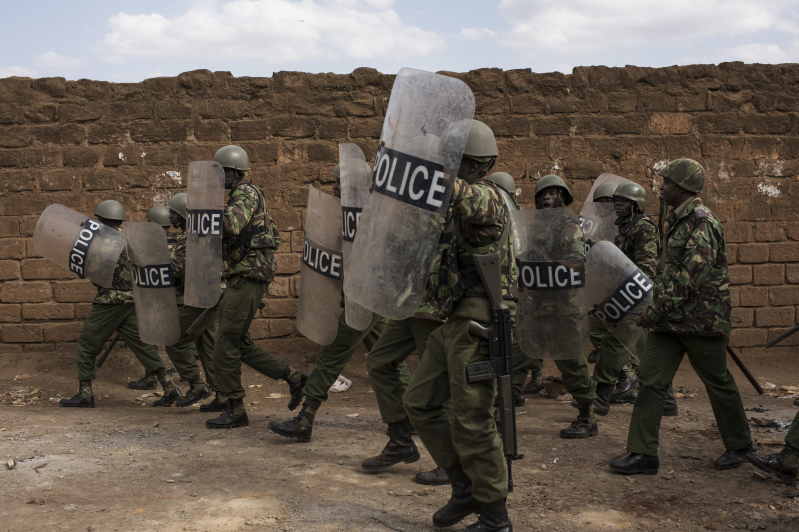
Kenya’s plan to include a faith-based intervention in its US-backed mission to Haiti has been received with mixed feelings in both nations. The intervention, which has the endorsement of Kenya’s President William Ruto’s wife, Rachel, is being spearheaded by a few evangelical pastors from Kenya, Haiti and the US.
The peace talks and mediation efforts by the evangelical pastors are meant to complement the deployment of 1,000 Kenyan police officers to Haiti. Approved by the UN Security Council, Kenya is leading a multinational security force that intends to push back the violent gangs controlling Haiti’s capital, Port-au-Prince, and secure government installations.
But a resurgence of gang-related violence, the resignation of former Haiti Prime Minister Ariel Henry and court cases have delayed the deployment of the police force which is now slated for late June. As part of the preparation to deploy the Kenyan police officers, Haitian police commanders were in Kenya’s capital, Nairobi, on June 18 to discuss with their counterparts on the upcoming mission.
Separately, evangelical pastors had met with Rachel Ruto to brief her on the progress and strategy for a spiritual intervention in Haiti. The first lady was on record saying that, “we cannot allow our police to go to Haiti without prayer.”
“We have come together to say we want to form a prayer strategy, and we would like you to join us in praying for this great country of Haiti because we know the Lord can transform Haiti,” Ruto said after meeting the team of seven pastors from Kenya, Haiti and the US.
One of the evangelical pastors involved in the Haiti initiative is Serge Musasilwa. He told BBC’s Africa Daily that the underlying reason why many peacekeeping missions fail is because the fundamentals are not well defined.
“There is no human conflict unless there is a human that has disobeyed God. That is the basis and that is why it is important for the clergy to be involved. Spiritual matters cannot be resolved politically,” said Musasilwa, who has been involved in peace and reconciliation initiatives in other African countries such as the Democratic Republic of Congo.
However, Evangelical Alliance of Kenya General Secretary Nelson Makanda told Christian Daily International that the Alliance is not privy to the discussions nor has it been invited to participate in the initiative.
Musasilwa suggested that the plan to launch prayers for Haiti was mooted by pastors close to the President and First Lady Rachel Ruto who hold daily national prayers in Kenya’s State House. In addition to praying for Haiti, Musasilwa said that the evangelical team of pastors also aims to bring all the Haitian civil society groups and the Haitian community to the negotiating table.
“It's an alternative (mediation process) but without being in collision or friction with the mission,” clarified Musasilwa.
Pierre Esperance, the Executive Director of the National Human Rights Defense Network in Haiti termed the promotion of evangelical Christinianity as “inappropriate”, calling instead for greater transparency and inclusivity in the mission to Haiti.
“Among other details, international officials should divulge the locations, time frames, and lines of command for the force’s deployment. They must also explain how the international police officers will successfully collaborate with a compromised and exhausted police force,” noted Esperance.
Jona Lazarre, the Co-founder of God’s Vision For Haiti (GVFH) told Christian Daily that although they don’t have specific information about Kenya’s plan for a spiritual intervention, GVFH hopes it is in line with God’s plan for Haiti.
“There have been so many past failed attempts. It is time for our Haitian brothers and sisters to truly turn to God, something has to change. People have suffered enough. We believe that it is time for the local churches in Haiti to turn to God, unite and rise to truly be the light in darkness,” said Jona.
There have been several interventions in Haiti since 2004 when a UN-backed multinational force was deployed to restore order after a period of political turmoil. The assassination of President Jovenel Moïse in 2021 exacerbated political uncertainty and violence.





